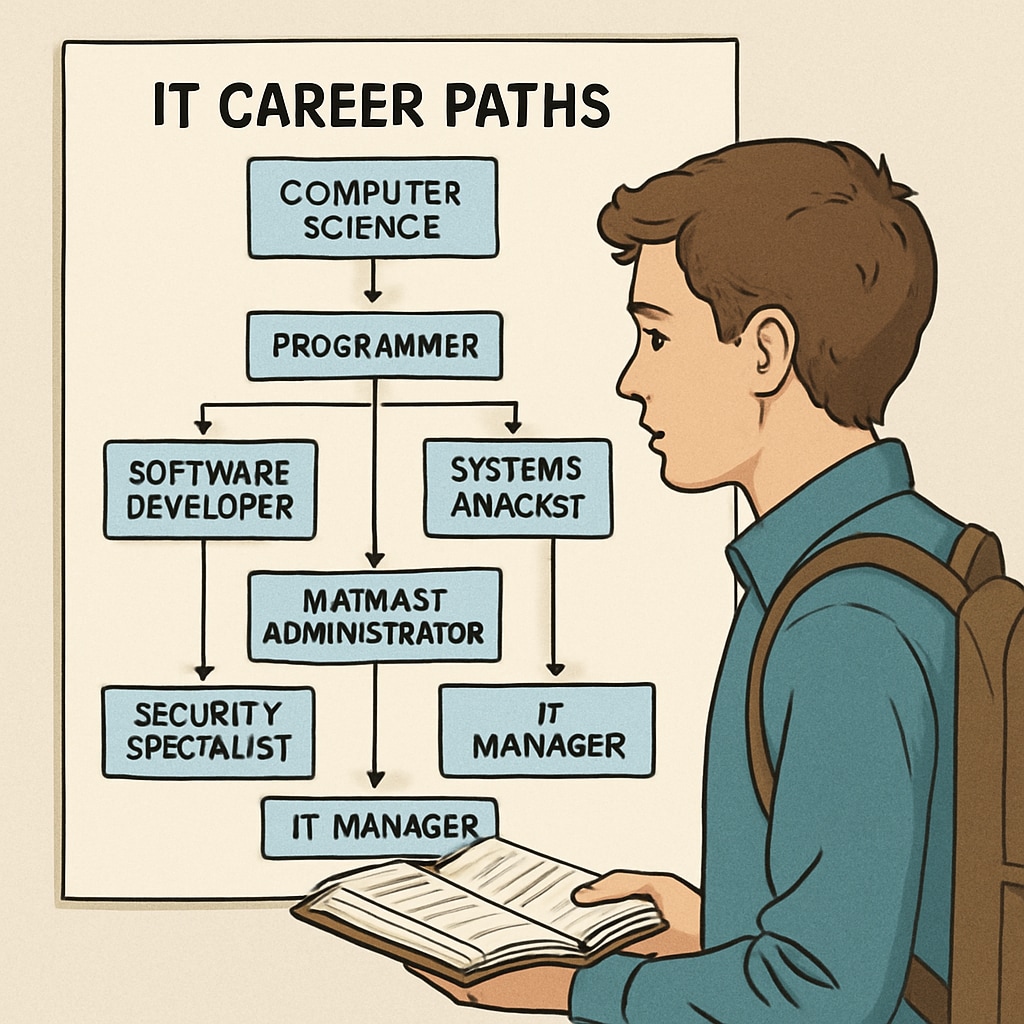For many 18-year-old college freshmen, navigating “IT career choices” can feel like an overwhelming task. With options like programming, networking, electrical engineering, and occupational health technologies, determining a career path that aligns with both industry trends and personal interests is no small feat. This guide offers a comprehensive framework for understanding these technical fields and making an informed decision about your future.
Understanding the Landscape of IT and Related Fields
The technology sector is vast, encompassing a broad range of disciplines such as software development, network engineering, and systems administration. To help simplify your decision-making, it’s essential to categorize these fields into three primary areas:
- IT and Networking: Focuses on managing computer systems, networks, and infrastructure.
- Programming and Software Development: Involves coding, building applications, and developing software solutions.
- Electrical Engineering and Instrumentation: Centers on designing and maintaining electronic systems and devices.
Each of these areas has distinct roles and responsibilities, but they all contribute to the digital transformation shaping industries worldwide.

Aligning Career Choices with Personal Interests
Before diving into a specific major, ask yourself the following questions:
- What topics excite you the most? For example, if you enjoy problem-solving, programming might be a good fit. If you prefer hands-on work, consider electrical engineering.
- What is your preferred work environment? IT professionals often work in collaborative office settings, while engineers may spend time in labs or the field.
- What is your long-term vision? Think about whether you see yourself working in a corporate, academic, or entrepreneurial setting.
By identifying your passions and work preferences, you can narrow your focus toward a field that resonates with your personal goals.
Considering Future Industry Trends
In addition to personal interests, it’s crucial to research the current and future demand for various roles. According to the U.S. Bureau of Labor Statistics, the tech industry is expected to grow by 13% from 2020 to 2030, significantly outpacing the average for other fields. Key growth areas include:
- Cybersecurity: With increasing digital threats, demand for cybersecurity experts is skyrocketing.
- Artificial Intelligence (AI): AI and machine learning specialists are transforming industries such as healthcare, finance, and manufacturing.
- IoT and Automation: The Internet of Things (IoT) and automation are creating opportunities in smart technologies and industrial systems.
Staying informed about these trends can help you choose a major with strong career potential.
Steps to Make an Informed Decision
To ensure your chosen major aligns with both personal and industry factors, follow these steps:
- Conduct Research: Use resources like Coursera or university websites to explore course offerings and career pathways.
- Seek Mentorship: Reach out to professors, industry professionals, or career counselors for guidance.
- Engage in Internships: Practical experience can give you a taste of what working in a specific field would be like.
Remember, the decision you make now is important, but it’s not set in stone. Many professionals pivot to new roles throughout their careers as industries evolve.

Ultimately, choosing a major in IT or related fields is a balance of personal interests, emerging trends, and practical considerations. By taking a thoughtful and systematic approach, you can embark on a fulfilling college journey and set the stage for a successful career.
Readability guidance: This article uses short paragraphs, clear lists, and accessible language. Transition words like “in addition,” “for example,” and “as a result” have been incorporated to improve flow and readability.


